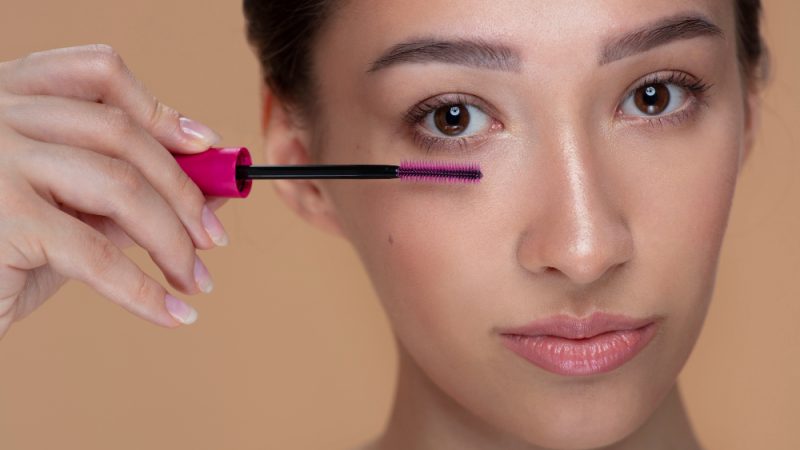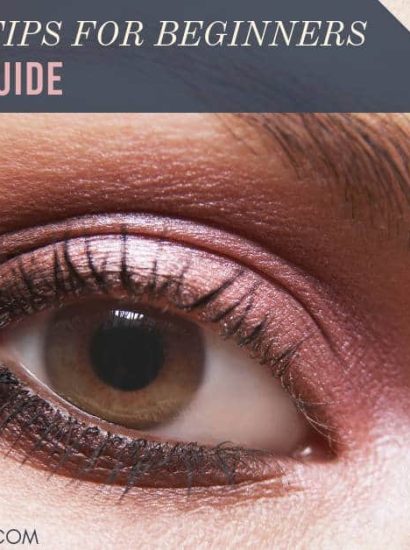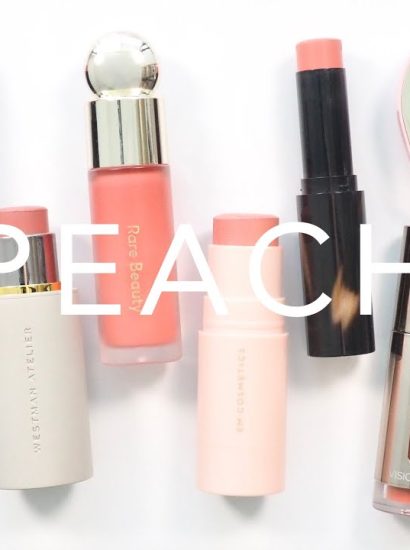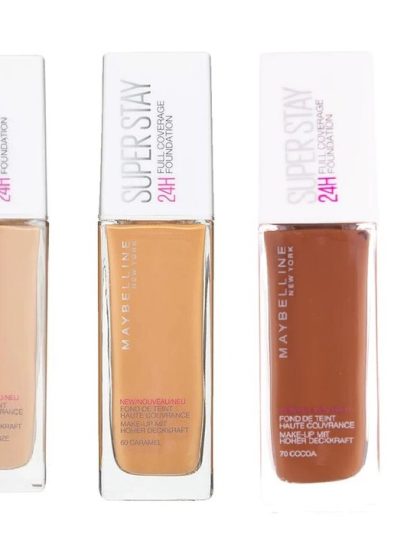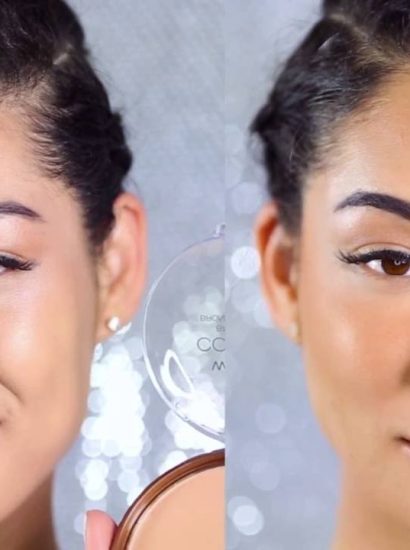Mascara is a staple in most makeup routines. A few swipes can transform your eyes, making them look bigger, brighter, and more defined. But if you’ve ever wondered whether your favorite mascara is secretly damaging your lashes, you’re not alone.
While mascara enhances your lashes temporarily, it can sometimes cause breakage or thinning if used incorrectly or excessively. This article explores how mascara affects your eyelashes, the myths around lash damage, and how to keep your lashes strong and healthy even if you wear mascara every day.
How Mascara Works
Mascara is designed to coat your eyelashes with pigments and waxes that add volume, length, and curl. The formula contains a combination of colorants, oils, and polymers that adhere to the lash hairs.
When applied, mascara stiffens as it dries, helping lashes hold their shape. Some mascaras contain fibers that attach to your natural lashes to create a fuller look. Waterproof mascaras, in particular, are designed to resist smudging, staying in place even through sweat or tears.
The key thing to understand is that mascara doesn’t nourish lashes — it coats them. That means frequent or improper use can lead to dryness and potential damage if not managed with care.
Common Ingredients in Mascara
Not all mascaras are created equal. Different formulations contain varying ingredients that can either benefit or harm your lashes depending on their quality and how you use them.
Typical mascara ingredients include waxes like beeswax or carnauba wax, pigments like iron oxides, and oils such as mineral or castor oil. Water-based mascaras contain fewer harsh ingredients and are easier to remove, while waterproof versions rely on strong solvents and silicones to stay put.
Although most mascaras are safe for everyday use, lower-quality or expired products may contain ingredients that dry out or weaken lashes over time.
Is Mascara Actually Bad for Your Eyelashes?
The short answer is: not inherently, but it can be if misused. Mascara itself isn’t harmful when used correctly and removed gently. Problems arise when people wear mascara too long, apply multiple heavy layers, or sleep without removing it.
Leaving mascara on overnight can cause lashes to become brittle. As you toss and turn during sleep, stiffened lashes can rub against the pillow and break. Over time, this leads to shorter, thinner lashes that may take weeks to regrow.
Similarly, waterproof mascara can dehydrate the lashes because its removal requires more effort. Tugging, rubbing, or using harsh removers can cause lashes to fall out prematurely.
The Real Damage: Application and Removal Mistakes
One of the biggest causes of lash damage isn’t the mascara itself but the way it’s applied and removed.
When you apply mascara too forcefully, clumps can form that weigh down lashes and make them more prone to breakage. Using expired mascara can introduce bacteria to your lash line, leading to irritation or infection.
The removal process is even more crucial. Scrubbing or pulling at your lashes when removing mascara can physically damage the hair follicle. Over time, this not only causes lashes to fall out but can also weaken the roots, leading to slower regrowth.
The solution is simple: be gentle. Use a mild, oil-based makeup remover and let it sit for a few seconds before wiping softly with a cotton pad. Always make sure to remove all traces of mascara before going to bed.
How Waterproof Mascara Affects Lash Health
Waterproof mascara is beloved for its long-lasting, smudge-proof formula. However, it’s also one of the most common culprits of lash damage.
Because it’s resistant to water, waterproof mascara forms a strong bond with your lashes. This makes it harder to remove, often leading to over-rubbing or pulling. Additionally, many waterproof formulas contain ingredients that can dry out the lashes, leaving them stiff and prone to snapping.
If you love waterproof mascara, reserve it for special occasions rather than daily use. On regular days, opt for a water-based or tubing mascara that’s easier to remove and less drying.
Signs That Mascara Is Damaging Your Lashes
If you use mascara regularly, watch out for signs that your lashes might be stressed or damaged. Common indicators include:
- Lashes that feel rough, dry, or brittle
- Noticeable shedding or thinning over time
- Irritation along the lash line
- Clumping and tangling of lashes
- Difficulty growing lashes back after breakage
These symptoms don’t necessarily mean you have to stop using mascara altogether. They simply signal that your lashes need a break or a better care routine.
How to Protect Your Eyelashes While Using Mascara
You don’t have to give up mascara to have healthy lashes. A few simple steps can go a long way in protecting them:
- Use a lash serum or conditioner – These products nourish the lash follicles and strengthen the hairs.
- Avoid pumping the mascara wand – Pumping introduces air into the tube, which dries out the formula faster.
- Replace mascara every three months – Old mascara can harbor bacteria and lose its effectiveness.
- Remove mascara gently – Use an oil-based or micellar remover and avoid rubbing.
- Give your lashes breaks – Let your lashes go makeup-free a few days a week to recover.
Proper care helps prevent damage, keeps lashes flexible, and ensures they grow to their natural length.
Are Certain Mascaras Better for Lash Health?
Yes, some mascaras are formulated specifically to support lash health. Many modern brands include conditioning ingredients such as panthenol, peptides, biotin, and natural oils. These help nourish lashes while providing color and definition.
Look for mascaras labeled as “nourishing,” “conditioning,” or “lash-strengthening.” Avoid those with alcohol, parabens, or synthetic fragrances that can cause dryness.
If you have sensitive eyes or wear contact lenses, choose hypoallergenic formulas designed for sensitive users. The right mascara can enhance your lashes safely while keeping them soft and strong.
Can Mascara Cause Permanent Lash Loss?
Permanent lash loss from mascara alone is rare. However, continuous rough handling and improper care can weaken the follicles over time.
Lash follicles are resilient and typically regrow lost hairs within one to two months. But if they’re consistently traumatized — for example, by daily harsh rubbing or heavy waterproof use — the follicle may stop producing new hairs.
That’s why it’s essential to practice good mascara hygiene, avoid overuse, and treat your lashes with the same care you would your hair.
How to Naturally Support Lash Growth
If your lashes have suffered damage or thinning, you can encourage regrowth naturally.
Use castor oil or vitamin E oil on your lashes before bedtime to moisturize and strengthen them. Maintain a diet rich in vitamins A, C, E, and biotin, which support hair health from within. Avoid rubbing your eyes and refrain from eyelash extensions or harsh treatments while your lashes recover.
Be patient — it takes time for lashes to regrow, but with proper care and gentle handling, they’ll regain their natural fullness and length.
Conclusion
Mascara isn’t bad for your eyelashes when used correctly and with care. The real harm comes from improper use, sleeping with makeup on, or being too rough during removal. Choosing a high-quality, nourishing mascara and keeping your lashes clean and moisturized can prevent most problems.
Your lashes deserve as much care as the rest of your beauty routine. Treat them gently, let them breathe occasionally, and they’ll stay strong, soft, and stunning — with or without mascara.
FAQs
1. Can wearing mascara every day damage your lashes?
Wearing mascara daily is safe as long as you remove it gently each night and use a high-quality formula. Avoid sleeping in it or rubbing your eyes.
2. How often should I replace my mascara?
Replace mascara every three months to avoid bacterial buildup and maintain smooth application. Old mascara can dry out and irritate your eyes.
3. Is waterproof mascara worse for your lashes?
Waterproof mascara isn’t harmful itself but is harder to remove. Over time, frequent use can make lashes brittle if not handled carefully.
4. What should I do if my lashes start falling out?
Give your lashes a break from mascara, use conditioning serums or natural oils, and avoid rubbing your eyes. Most lashes regrow naturally within a few weeks.
5. How can I make my lashes stronger?
Eat a balanced diet, stay hydrated, use lash conditioners, and avoid overusing waterproof formulas. Gentle care helps your lashes grow thicker and healthier.
Also read: Acrylic vs Gel X vs Sculpted Gel Nails: Which Is Best for You?

